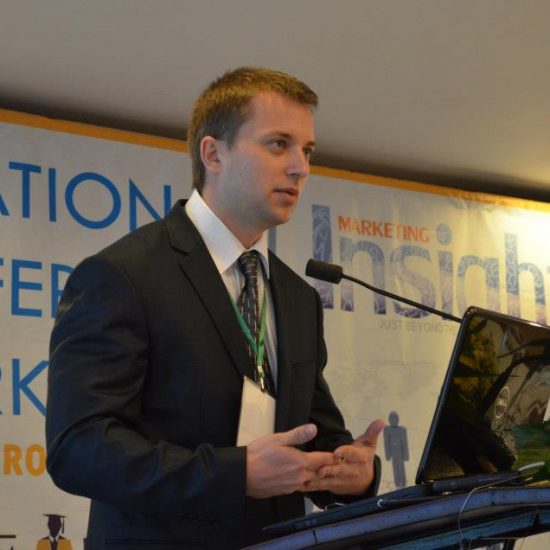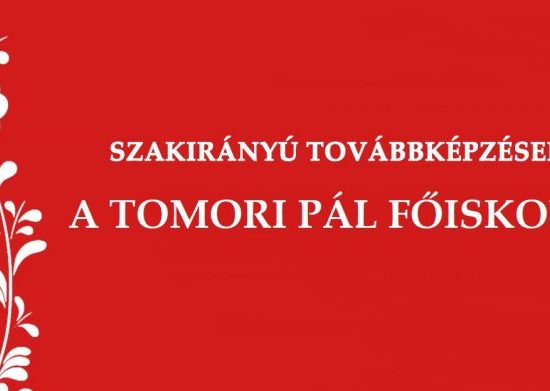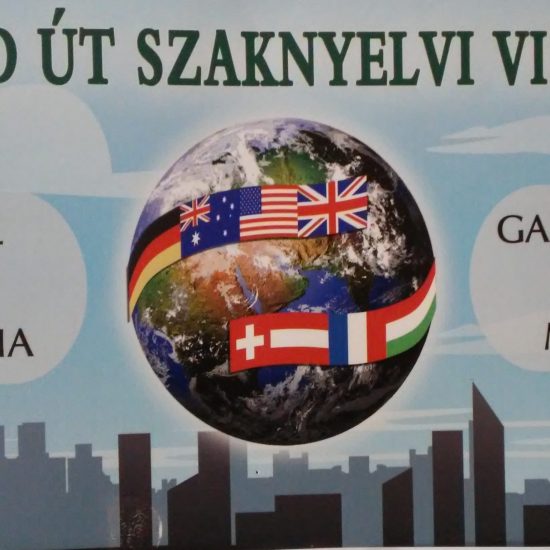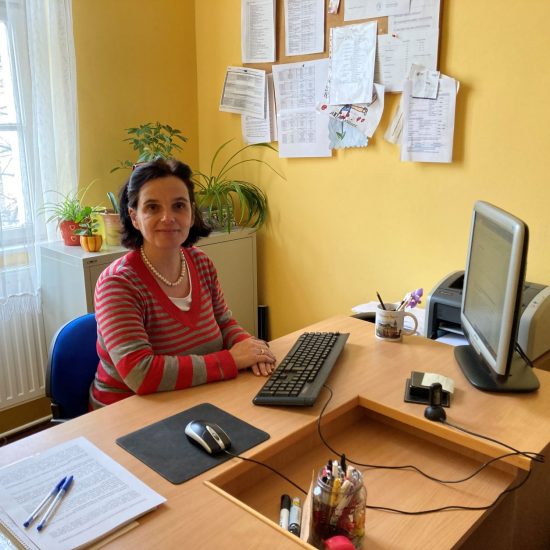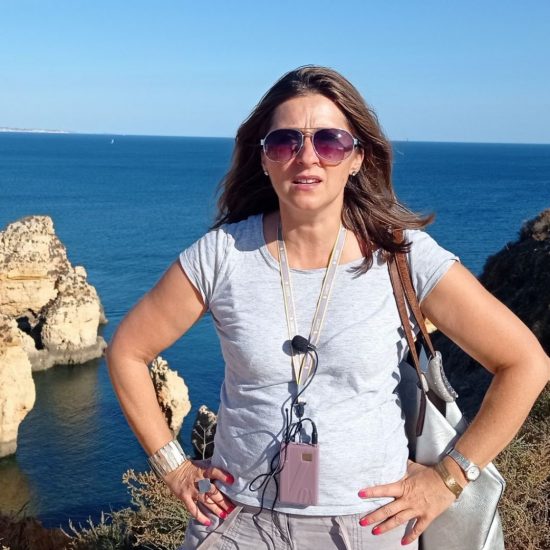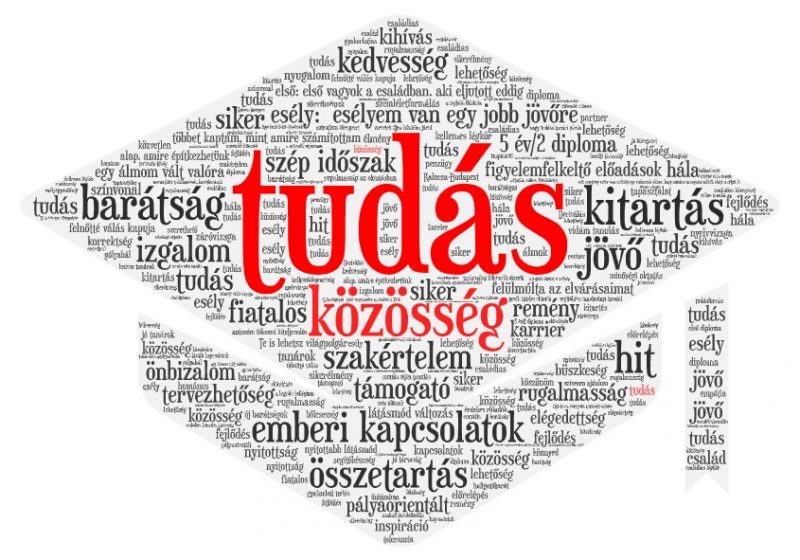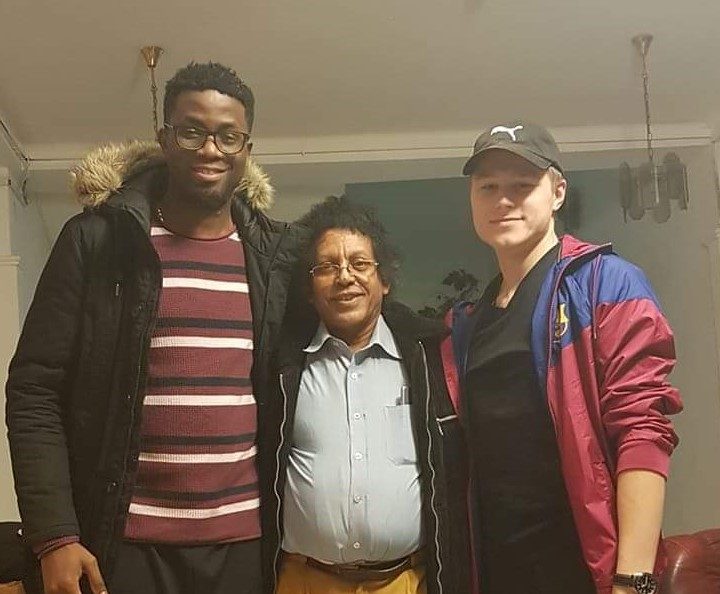
The Article is available in English and in Hungarian, too.
You have recently received an award from the Association of Professors for European Hungary for the recognition of your work as instructor and consultant. What exactly does this mean?
I have been a member of the Association for 10 years. Now preparing PhD students, and I have worked many times as an opponent for publications, this work has been recognized. I have been an opponent and consultant on issues concerning engineering , the relationship between the world economy and the automotive industry within economics. They often need a professor whose English skills are also appropriate for the tasks of an opponent.
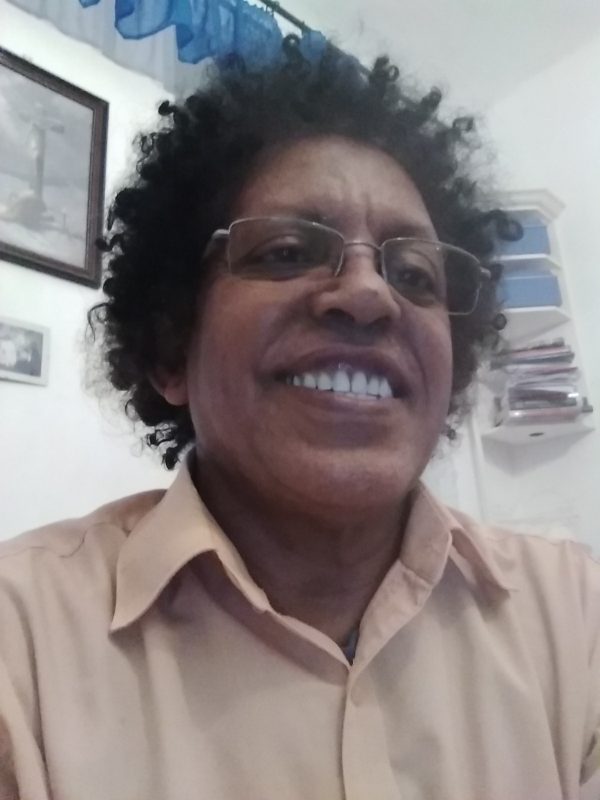 You have an adventurous life journey which started from afar. Can you tell me about the family you come from?
You have an adventurous life journey which started from afar. Can you tell me about the family you come from?
I’m from Eritrea. My father was a soldier, my mother was at home with us. As a boy, I had to earn money for the family. I started learning from people bigger than me very early, finding those trying to get to school, and questioning them about their lesson, so I finished the 6th grade at the age of nine. By this time, I have been teaching children and as my family was poor, the only way I could do schools was to earn the school fee. In the summer, i gave classes to others at school. My mother used to say that. „May your word be ink.” – Which means that my words were supposed to be so clear that they could be understood and be of interest for all. I come from a Coptic Orthodox family, it is still very important to me.
I finished high school in Eritrea, the capital. At high school, I taught English and mathematics, and in the meantime, I attended university in the evening from where i graduated. At a very young age, at the age of 13, I studied international accounting, electromechanics and psychology. At first I started working as an engineer, but I was bored and wanted to work in an office, so I continued my studies by studying accounting. When I was a kid, I wanted to be a doctor, but I couldn’t do that, so I even did psychology to learn more about people, but in the end, I never worked as a psychologist.
How did you get to Hungary?
I came to Hungary in 1989, when I was 24 years old. In my engineering work, my bosses sent me here on a government scholarship. For a year I studied Hungarian in Budaörs, but not only the language, also history, geography and economics. I started my applied economics studies at Janus Pannonius University in Pécs, so I did almost the same thing I had done at home, but now in Hungarian. From 1991/92 the Janus Pannonius University started courses in English language to, and I participated in it as a teacher. Between 1994 and 2001, I taught in the United States, Georgia and Pennsylvania as a PhD student, with american colleagues I taught here in Hungary, and in the summer I worked in shops.
In 2001, my daughter was born in Hungary, and I wanted to be with my family so I decided to leave the USA. I started working at the University of Pécs again, and from 2005 to 2008 I taught at the International Week in Belgium. I taught in a total of 19 countries in Europe as part of international week job as a member of the European Taxation and Accounting in Practice organisation. In Szekszárd, I became head of department at the Department of Management at Illyés Gyula College, and in 2010 I was invited to Harsányi János College, followed by the Business College of Modern Sciences, where I was in charge of controlling. From here, several of my students competed in international competitions on accounting topics, where we gained first and second prices from 2011 to 2018 and I did receive certificates of appreciation every year. In 2019, I started to work in the Department of Finance and Accounting at Paul Tomori College.
This means continuous improvement and a great experience. What does teaching mean to you?
Yes, you could say that i have taught all my life. In Eritrea, too, the children called me the professor. In Pécs, in my dormitory, the sign of my room said „Master of all sciences”. I was very fond of Hungarian students because I have always experienced it a challenge to explain something that was not necessarily easy to understand. Students are often full of fear when they learn because they fear they may not be able to master the material. I would like to first and foremost free them from their fears by using interactive communication in education.
You’ve lived here in Hungary for a long time. How much do you feel about this country as your home?
I had the opportunity to stay abroad many times, but I feel good here, so this can be seen as a conscious decision. As long as they accept what I can give them, I think I’m home. I have never thought to criticise Hungary or Europe but I have always wanted to accept them. One funny thing: I don’t like jelly, which is one of the traditional dishes here in Hungary, but my students also made me jelly from beef because they learned that copts do not eat pork, and, you know, it was so much better that way!
With Hungarian students, I find the common voice just as well as I do with foreigners, even though I am not fluent in Hungarian. I tell them not to mind if I do not speak their language perfectly, I am going to explain to them what they need to do, and they will not miss any academic knowledge due to language difficulties. When I see the students’ abilities, I suggest what studies they should pursue, what “race” to compete in. If I meet my former students on the subway, they would tell me what they have achieved and how those studies have influenced them, which I had suggested to them. A lot of people tell me that I have moved their careers forward and that always fills me with happiness.
„A te szavad, legyen tinta”
Interjú Melles Hagos Tewoldéval, a Tomori Pál Főiskola tanárával
Aki csak ismeri Melles Hagos Tewoldét, tudja, hogy a jókedve messzire sugárzik, talán ez az egyik oka, hogy olyan eredményes a hallgatók lelkesítésében. Legutóbb a főiskola TDK konferenciáján három diákja szerepelt sikeresen. Nemrégiben a Professzorok az Európai Magyarországért Egyesületétől kapott elismerő oklevelet az oktatói és konzulensi tevékenységéért. Az interjú apropója ez, de persze kérdeztem arról is, hogy milyen környezetből érkezett hozzánk, mit hozott magával, milyen utat járt be és mit jelent számára a tanítás.

Melles Hagos Tewolde, a Tomori Pál Főiskola oktatója
Pontosan milyen tevékenység miatt kaptad ezt a megtisztelő elismerést?
Tíz éve vagyok a Professzorok az Európai Magyarországért Egyesület tagja. Most a PhD hallgatók felkészítéséért jutalmaztak, illetve dolgoztam publikációk opponenseként is, ezt a munkámat ismerték el. A közgazdasági témán belül a mérnöki témákat érintő kérdésekben, illetve a világgazdaság és az autógyártás kapcsolatát érintő kérdésekben végeztem mindkét szakértői tevékenységet, és sokszor van szükség olyan professzorra, akinek az angol nyelvtudása is megfelelő az opponensi feladatokhoz.
Kalandos életutad van, messziről kezdődött. Milyen családból származol?
Eritreából származom. Apám katona volt, anyám otthon volt velünk. Mint fiúgyereknek nekem is kellett pénzt hoznom a házhoz. Nagyon korán elkezdtem tanulni a nálam nagyobbaktól, az iskolába igyekvőket kísértem, és közben kikérdeztem őket a leckéjükről, így aztán a többieknél jóval hamarabb, kilenc évesen fejeztem be a 6. osztályt. Ekkor már tanítottam gyerekeket. Nyáron foglalkozásokat tartottam a többieknek az iskolában. Az édesanyám mindig azt mondta. „A te szavad, legyen tinta.” – Ami azt jelenti, olyan tiszta legyen, ami azonnal leírható és érdekes az emberek számára. Kopt ortodox családból származom, ez a mai napig nagyon fontos a számomra.
Eritreában, a fővárosban fejeztem be a középiskolát. Ott angolt és matematikát tanítottam, és közben végeztem az egyetemet esti tagozaton. Nagyon fiatalon, 13 évesen, nemzetközi számvitelt, elektromechanikát és pszichológiát tanultam. Először mérnöki munkát kezdtem végezni, de untam, és szerettem volna más irodai munkát, ezért folytattam a tanulmányaimat a számvitel tanulásával. És ha most azt kérdezed, miért tanultam pszichológiát is? Hát, gyerekkoromban orvos szerettem volna lenni, de ez nem sikerült, ezért gondoltam, tanulok valami olyat, aminek a segítségével többet tudok meg az emberről, de végül pszichológusként soha sem dolgoztam.
Hogy kerültél Magyarországra?
1989-ben jöttem Magyarországra, akkor 24 éves voltam. A mérnöki munkám során a főnökeim küldtek ide egy állami ösztöndíjjal. Egy évig magyar nyelvet tanultam Budaörsön, de nem csak a nyelvet, hanem történelmet, földrajzot és közgazdaságtant is. A Janus Pannonius Egyetemen, Pécsett kezdtem meg az alkalmazott közgazdasági tanulmányaimat, tehát újra elvégeztem szinte ugyanazt, amit otthon, most azonban már magyarul. 1991/92-től angolul is oktattak Pécsen, és ebben már tanárként vettem részt. Itt végeztem el a BSC, MSC és doktori tanulmányaimat is, és 1994 és 2001 között az Egyesült Államokban, Georgiában és Pennsylvaniában tanítottam PhD hallgatóként, nyáron pedig üzletekben dolgoztam.
2001-ben Magyarországon született a lányom, velük akartam lenni, ezért végül Magyarország mellett döntöttem. A Pécsi Tudományegyetemen kezdtem ismét dolgozni, majd 2005-től 2008-ig Belgiumban is tanítottam a nemzetközi heten. Összesen 19 országban tanítottam Európában a nemzetközi hét keretében az European Taxation and Accounting in Practice szervezet tagjaként. Szekszárdon az Illyés Gyula Főiskolán lettem tanszékvezető a Gazdálkodásmenedzsment Tanszéken, majd 2010-ben hívtak a Harsányi János Főiskolára, ezután a Modern Tudományok Üzleti Főiskolája következett, ahol kontrolling szakfelelős voltam. 2011 és 2018 között innen is több hallgatót vittem versenyezni számviteli témákban nemzetközi versenyekre, ahol első és második helyezést értek el, és majdnem minden évben elismerő oklevéllel jutalmaztak. 2019-ben kerültem a Tomori Pál Főiskolára, a Pénzügyi és Számvitel Tanszékre.
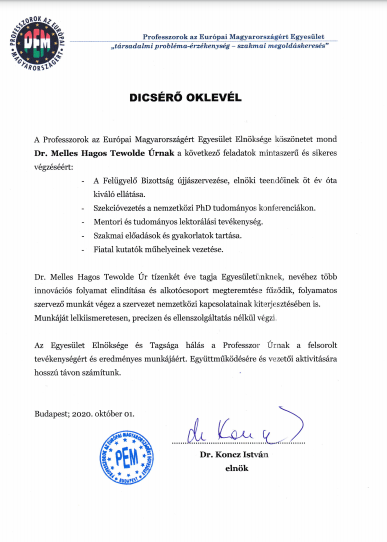 Egész életedben tanítottál. Ez folyamatos fejlődést és hatalmas tapasztalatot ad az embernek. Mit jelent számodra a tanítás?
Egész életedben tanítottál. Ez folyamatos fejlődést és hatalmas tapasztalatot ad az embernek. Mit jelent számodra a tanítás?
Igen, mondhatjuk, hogy egész életemben tanítottam. Eritreában is professzornak szólítottak a gyerekek. Pécsen a kollégiumban a szobám ajtaján ez állt: „Minden tudományok mestere”. Nagyon kedveltek a magyar hallgatók, mert mindig is kihívásnak éltem meg, hogy elmagyarázzak valamit, amit nem feltétlenül könnyű megérteni. A diákok sokszor teli vannak félelemmel, amikor tanulnak, mert tartanak attól, hogy nem tudják elsajátítani az anyagot. Én elsősorban az interaktivitás révén, hatékony kommunikáció alkalmazásával szeretném őket megszabadítani a félelmeiktől.
Régóta itt élsz Magyarországon. Mennyire érzed az otthonodnak ezt az országot?
Lett volna lehetőségem sokszor külföldön maradni, de én jól érzem magam itt, ezért ez tudatos döntésnek tekinthető. Ameddig elfogadják, amit adni tudok, addig azt hiszem, otthon vagyok. Soha nem gondoltam úgy Magyarországra vagy Európára, hogy kritizálnom kellene, inkább elfogadni akartam. Egy vicces dolog: nem szeretem a kocsonyát, ami itt Magyarországon a hagyományos ételek egyike, de a tanítványaim készítettek nekem marhahúsból, mert megtudták, hogy a koptok nem esznek disznót, és tudod, úgy sokkal jobb volt!
A magyar hallgatókkal pont olyan jól megtalálom a hangot, mint a külföldiekkel, hiába töröm a magyart. El szoktam nekik mondani, hogy ne bánják, ha nem beszélem tökéletesen a nyelvüket, el fogom nekik magyarázni, amit kell, a tudományos részben pedig nem lesz hiány. Ha látom a hallgatók képességeit, javasolni szoktam, hogy mi felé menjenek, milyen versenyen induljanak. Ha a metrón találkozom a volt tanítványaimmal, elmesélik, mire jutottak, és mennyiben befolyásolta őket, amit javasoltam nekik. Sokan elmondják, hogy előre vittem a pályájukat, és ez mindig boldogsággal tölt el.
A cikk angol nyelvű fordítását Melles Hagos Tewolde készítette. A lektorálásért köszönetet mondunk Pál Monikának.

